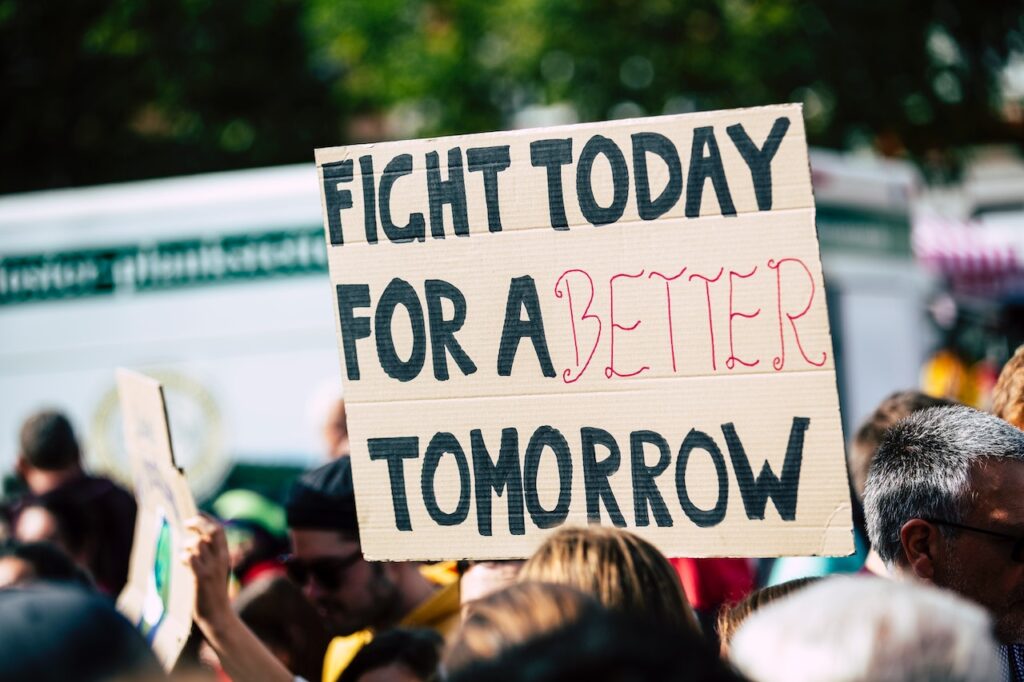
In today’s tumultuous times, it often feels as though kindness and compassion have taken a back seat in our interactions. There are so many unkindness, anger, and actually so much pure evil in the world that it is almost unimaginable that our society still functions. Reality of many people is very sad and reality of the world itself is not much better. Around 828 million people are literally starving and around 2,3 billion people are facing dangerous levels of food insecurity.
Besides that, the world is constantly in some kind of war or conflict. In the last 200 years there have been almost no time period without wars.
In one of our previous articles, we tried to imagine a world without wars. While for us it is imaginable and desirable, for some people, and especially those in position on power, wars seem like a necessity.
Adding to that current state of society, where many people are unhappy either with their jobs or with life overall, we must ask ourselves where lays the problem.
The problem is obviously hidden in many different factors. And one of them for sure is – unkindness, greed, and bad behavior of some group of people towards other groups of people.
So, in that sense, in an alternate reality, let’s explore what our world could look like if every individual embraced the transformative power of niceness. A world where empathy, understanding, and benevolence prevail. Join us on this journey as we delve into the potential implications of a society built on kindness.
The Ripple Effect of Kindness

Kindness has an incredible ripple effect that permeates through all aspects of our lives. Imagine a society where people prioritize compassion in their daily interactions. From simple acts of courtesy to profound displays of empathy, the ripple effect of kindness would be undeniable. Small gestures of kindness could uplift someone’s day, prompting them to extend that kindness to others. It would create a virtuous cycle, fostering a harmonious and supportive community.
Kindness doesn’t have to be grand gestures; even small acts can have a significant impact. Holding the door open for someone, offering a genuine smile, or lending a listening ear to someone in need can make a difference. These acts of kindness create a positive energy that spreads from person to person, fostering a sense of connectedness and well-being.
Furthermore, the ripple effect of kindness extends beyond immediate interactions. When individuals experience kindness, they are more likely to pay it forward and extend the same warmth and compassion to others. This ripple effect has the potential to create a chain reaction of kindness, touching the lives of countless individuals and transforming communities.
Strengthening Relationships and Building Trust

Kindness serves as the foundation for healthy relationships and the establishment of trust. In a world where everyone is genuinely nice, interpersonal connections would flourish. People would approach conversations with a genuine desire to understand and empathize, creating a safe space for open and honest communication. Trust would become the default, allowing for deeper connections and meaningful collaborations.
When kindness becomes the norm, relationships become more fulfilling and authentic. Individuals feel valued, heard, and respected, leading to stronger bonds. This, in turn, fosters a supportive environment where people feel comfortable expressing their thoughts and emotions without fear of judgment.
Building trust (without lies) is crucial not only in personal relationships but also in larger societal structures. In a world where everyone is nice, trust becomes the bedrock of communities and institutions. People trust that their needs will be met, that justice will prevail, and that cooperation and collaboration will thrive. This trust creates stability and enables societies to address challenges collectively and effectively.
Nurturing Mental and Emotional Well-being
Kindness has a profound impact on our mental and emotional well-being. In a world where everyone is nice, the prevalence of anxiety, stress, and loneliness would significantly decrease. Acts of kindness, no matter how small, can alleviate the burdens individuals carry, lifting their spirits and reminding them that they are not alone.
Research has shown that practicing kindness releases oxytocin, a hormone associated with happiness and well-being. Acts of kindness trigger a positive feedback loop, enhancing our own sense of fulfillment and contentment. When we extend kindness to others, we experience a boost in mood, reduced stress levels, and increased overall life satisfaction.
Moreover, a society built on kindness would prioritize mental health. Compassionate support systems would be established, ensuring that individuals have access to the resources they need. Kindness would replace judgment and stigma, creating an environment where seeking help is encouraged and celebrated.
Mental health challenges are widespread, and fostering a culture of kindness can help break down the barriers surrounding these issues. When people are open and compassionate about mental health, individuals feel safer reaching out for support. Kindness not only improves the well-being of individuals but also creates a more empathetic and understanding society.
Note: Did you know that more than 1 in 5 US adults live with a mental illness? Staggering number!
Spreading Kindness in Education and Workplaces

Education and workplaces play a crucial role in shaping our lives. Imagine schools and universities that prioritize kindness as a core value. Syllabuses would incorporate lessons on empathy, emotional intelligence, and conflict resolution. Students would not only excel academically but also grow into compassionate individuals who contribute positively to society.
Educational institutions that emphasize kindness create an environment where bullying and exclusion are actively addressed. Students learn to appreciate diversity and develop the skills to navigate conflicts peacefully. Kindness in education fosters a sense of belonging and promotes positive mental health, setting the stage for a compassionate society to flourish.
Similarly, workplaces would foster a culture of kindness, where colleagues support and uplift one another. Compassionate leadership would encourage employee well-being, resulting in increased job satisfaction, productivity, and overall happiness. Collaboration and innovation would thrive in a kind and inclusive work environment.
A workplace that values kindness fosters a sense of purpose and fulfillment in employees. When kindness is embedded in company values and practices, it creates a supportive atmosphere where individuals can thrive both professionally and personally. This, in turn, leads to higher employee engagement, retention, and organizational success.
Yet, in today’s society – how many schools and workplaces actually foster niceness and kind behavior?
Sure, it is written somewhere in their code of conduct. But when you miss your deadline for the first time – your manager will probably turn into some kind of completely unkind being.
So, in that sense, unfortunately, in education and workplaces – kindness is mostly only written in some HR policies but not in reality. Sure, there are some companies who are true to their willingness to really be kind. But those companies and education institutions are very rare.
Kindness as a Global Movement

Imagine a world where kindness transcends borders and becomes a global movement. Kindness ambassadors would emerge, spreading messages of compassion and inspiring others to embrace a kinder way of life. Global initiatives and campaigns would be launched to address pressing issues such as poverty, inequality, and environmental challenges. By working together with kindness as our compass, we could create lasting change and build a more sustainable and equitable world.
Kindness knows no boundaries, and when it becomes a global movement, the impact is immeasurable. Through international collaborations and collective action, we can tackle global challenges with empathy and compassion. From eradicating poverty to combating climate change, kindness would fuel our efforts and drive us towards a brighter future for all.
Moreover, by prioritizing kindness on a global scale, we would cultivate a sense of interconnectedness and shared responsibility. This sense of unity would break down barriers of division and foster collaboration across nations and cultures. The world would become a place where kindness is not only a personal value but a guiding principle in all aspects of society.
Interesting thought: In a world where everyone is nice do you think there would be lies?
Conclusion on Kindness & Niceness

Imagine a world where kindness reigns, a supreme world where compassion is the driving force behind every action and decision. It is a vision that may seem idealistic, but it is not beyond our reach. By embracing the power of kindness, we can shape a future where understanding, empathy, and benevolence guide us.
Through the ripple effect of kindness, we would witness strengthened relationships, nurtured trust, a celebration of diversity, enhanced mental and emotional well-being, and the transformation of education and workplaces. Kindness would also emerge as a powerful global movement, propelling us towards a more sustainable and equitable world.
In that sense we need to try to envision a world where everyone is nice and begin taking steps towards making that vision a reality. Start with a smile, a kind word, or a helping hand. Together, we can cultivate a world where kindness is the norm, and the ripple effect spreads far and wide, transforming our lives for the better.
Because without additional kindness and compassion, there’s a good possibility we’ll destroy ourselves or we’ll become part of some kind of simulation where all kindness is fake.
Note: If you’re interested in similar articles, on topic of “What would world look like”, you can check:



























